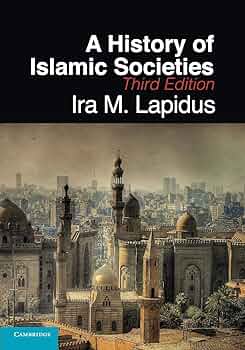
The Islamic world, or, what Muslims refer to as the “Ummah,” is a mess. Notwithstanding the Arab Spring, every single step forward has been met with many reversals. Libya is now ruled by thugs and tribal warlords; not entirely different from Afghanistan. Only 20 percent of Syria is under the control of President Bashar Assad, but he insists on holding onto his power. Egypt has experienced a coup, and the leadership is now effectively under the thumb of President Morsi. Turkey, on the other hand, is becoming increasingly authoritarian under President Recep Tayyip Erdogan, with tens of thousands of suspected “Gullenists,” being sacked, dismissed orput in jail, after the unsuccessful coup of July 15.
Ira Lapidus, a professor in Middle Eastern history, who has long made a name for himself at University of California, Berkeley, looks at the Islamic world in terms of how it grew from trade and mutual exchange of knowledge, which were both religious and practical. In this sense, Ira Lapidus’s work can function as a powerful corrective to the malaise that one often witnessed in the Muslim world, which rightly or wrongly, is blamed on Western colonialism; even though the latter ended long after the end of the Second World War.
Indeed, Ira Lapidus’s work is a magisterial and majestic commentary of the Islamic world. What he couldn’t delve more deeply into was the manner by which Islam travelled to Southeast Asia. Was it through its geographical proximity to Xi-An, China, or, Guangzhou? Without answering such critical issues, the spread of Islam to Southeast Asia and other parts of Central Asia will always be bound in a myth that it was the local Sultans who embraced Islam after jettisoning Hinduism and Buddhism in the 15th century.
